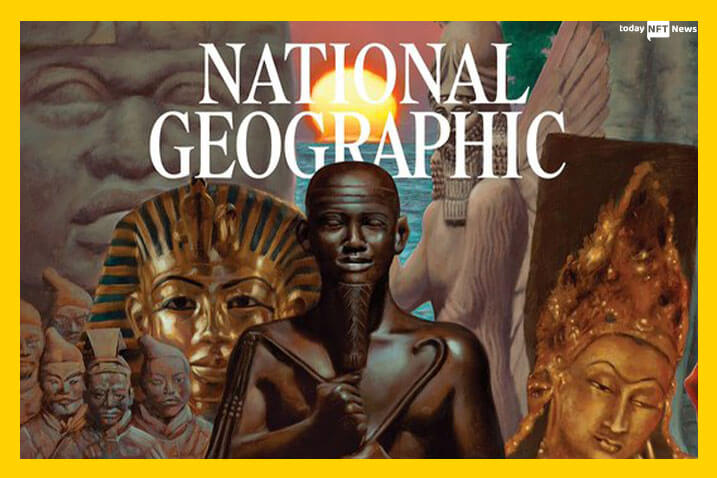SNEAK PEEK
- About NFTs and the metaverse, Nat Geo has submitted three trademark applications.
- Nat Geo makes NFTs under its trademark.
- This follows Nat Geo’s partnership with Snowcrash last month to launch Genesis NFT.
A few days ago, Mike Kondoudis officially announced that Nat Geo had filed three trademark applications related to the NFTs and Metaverse. A large number of the magazine’s 135-year-old devotees are upset with National Geographic for publishing a thorough explanation of the technology on social media and launching its first NFTs on Polygon.
On Monday, NatGeo’s social media pages shared a picture of a Bored Ape Yacht Club (BAYC) NFT and a message discussing the emergence of NFTs—individual blockchain tokens representing ownership.
It was intended to prepare the magazine’s general readership for Tuesday’s NFT release on Polygon, which featured work from 16 photographers. The vast majority of comments on NatGeo’s social media pages were critical of NFTs, calling them a “bubble” that had “already busted,” “bullshit,” “an extinct species,” and even “another method to launder.”
Today is the day! Nat Geo’s Genesis collection ‘GM: Daybreak Around the World’ will go on sale at 12pm PT / 3pm ET! https://t.co/03vvZMbCB0 pic.twitter.com/Sdhfcv7bBK
— Nat Geo Photography (@NatGeoPhotos) January 17, 2023
This month, it introduced its Genesis NFT line with Snowcrash as a partner, an NFT and metaverse platform. It includes 1,888 NFT-authenticated images of dawn from around the world, gathered by 16 local artists and photographers. NFT is scheduled to launch on January 17.
The response to NatGeo just mentioning NFTs on their social media accounts was very hostile, with many people labeling NFTs a “bubble” that had “already busted,” “bullshit,” “an extinct species,” and even “another method to launder.”
Other people asserted that NFTs were blatant “schemes,” effectively discrediting the entire system despite the fact that people, not technology, created NFT phishing scams and “rug pulls.”
The general public’s impression of NFTs has not changed. While the energy usage of ETH decreased by 99.998% due to the Ethereum merge, this did alleviate environmentalists’ concerns about NFTs.
The volume of NFT trades has decreased significantly since NatGeo first introduced them. Just $15.39 million in NFT volume for Polygon was traded on OpenSea last month, according to data from a Dune Analytics dashboard, which is an 80.5% decrease from the prior year.









